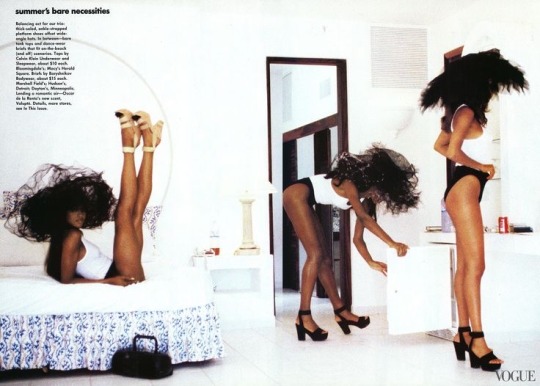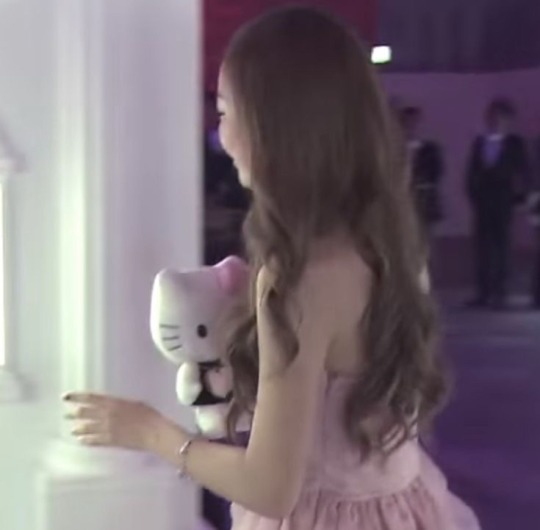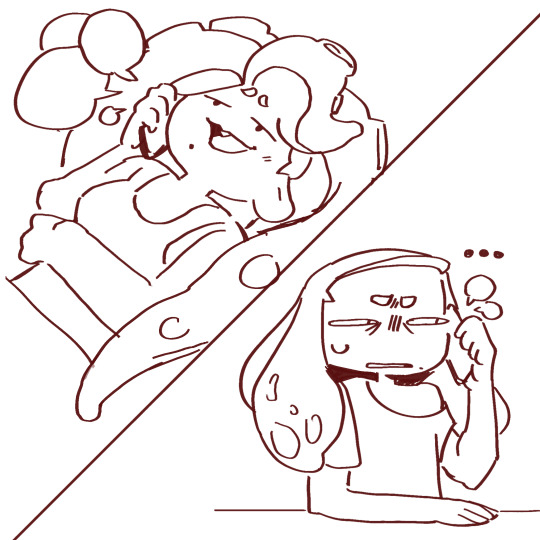#POP | CULTURE
Explore tagged Tumblr posts
Text
Title: A SACRET LOT
Arrangement: Masayoshi Minoshima
Vocals: 綾倉盟
Album: POP | CULTURE
Circle: Alstroemeria Records
Original: A Sacred Lot
#touhou#touhou project#touhou music#highly responsive to prayers#a sacred lot#masayoshi minoshima#綾倉盟#POP | CULTURE#Alstroemeria Records#yes the typo is in the song title
12 notes
·
View notes
Text
chappell roan doesn't need to "get a pr manager" you bitches need to grow a spine and gain some critical thinking skills
#people have made kamala into this pop culture figure and now they're mad when she gets called out for being horrible#and also i think people are just looking for ways to hate on chappell so.#lisa.txt#chappell roan
15K notes
·
View notes
Text






Kate Bush as the Sound Monster in Experiment IV (1986)
#Kate bush#Halloween#horror#monster#music#Pop culture#music video#film#aesthetic#spooky#1980s#1986#80s#fashion#women in music#aes#costume#bts#behind the scenes
9K notes
·
View notes
Text
🙈🙉🫥🔐🪬🏃🏻♂️👨🏻🏃🏻♂️🪬🔐🫥🙉🙈
Emoji spell to keep the shooter of the CEO of United Healthcare safe and never caught
Like to charge
Reblog to cast
#emoji spell#emoji spells#witch#emoji witchcraft#feminist witchcraft#pop culture witchcraft#witchcore#witchcraft#wicca#wiccan#pagan#pop culture witch#united healthcare#brian thompson
7K notes
·
View notes
Photo

Intersections of Play: Paul Pfeiffer's The Playroom, 2012
9K notes
·
View notes
Text

"Mon Amour." Magazine cover illustration for La Vie Parisienne, November 20, 1920. Gouache and watercolor on paper. Rene Vincent.
#illustration#art#vintage#magazines#poster#posters#pop culture#graphic design#design graphique#design grafico#1920s#art nouveau
6K notes
·
View notes
Text
Thinking about the time I lost a game of Overwatch and I was so mad about it that I genuinely considered getting into shit with the other team in chat and then realized that it was a colossal waste of my living breathing Human Time and uninstalled Overwatch instead because it was only making me angry.
And then thought about the OTHER time when I was on TikTok and realized I was Not Enjoying Myself and was, in fact, seeing so many sad videos and fake influencer ads that I felt Truly Despondent and then just…Deleted it.
Imo I want my social media /general media experience to be a pleasant break from real world and I get to decide what I get to cull to make that a reality for myself. I highly reccomended it! Life has improved considerably!
#look not having social medias is not My Personality#however like. no twitter. no insta. no tiktok.#do I know anything???? no.#am I up to date on literally anything pop-culture????? also no#and if that stuff’s important to you absolutely stick with it!#maybe this is a direct reaction to growing up terminally online from 2012 onward but i am freeeeee#it’s honestly made a huge difference in my life! i CAN just say no to these apps that want to suck all my time away!!!!
23K notes
·
View notes
Text

Naomi Campbell, Tyra Banks, & Beverly Peele for VOGUE (1992)
#black culture#black supermodels#original supermodels#supermodel#vogue#vogue magazine#high fashion#runway fashion#runway looks#magazine#glamour#black beauty#black fashion#black girl moodboard#paymetea#black model#90s aesthetic#90s fashion#90s supermodels#90s#90s nostalgia#vintage#black tumblr#blackgirl#black is beautiful#black girl fashion#runway#pop culture#naomi campbell#tyra banks
5K notes
·
View notes
Text
As I keep shouting into the void, pathologizers love shifting discussion about material conditions into discussion about emotional states.
I rant approximately once a week about how the brain maturity myth transmuted “Young adults are too poor to move out of their parents’ homes or have children of their own” into “Young adults are too emotionally and neurologically immature to move out of their parents’ homes or have children of their own.”
I’ve also talked about the misuse of “enabling” and “trauma” and “dopamine” .
And this is a pattern – people coin terms and concepts to describe material problems, and pathologization culture shifts them to be about problems in the brain or psyche of the person experiencing them. Now we’re talking about neurochemicals, frontal lobes, and self-esteem instead of talking about wages, wealth distribution, and civil rights. Now we can say that poor, oppressed, and exploited people are suffering from a neurological/emotional defect that makes them not know what’s best for themselves, so they don’t need or deserve rights or money.
Here are some terms that have been so horribly misused by mental health culture that we’ve almost entirely forgotten that they were originally materialist critiques.
Codependency What it originally referred to: A non-addicted person being overly “helpful” to an addicted partner or relative, often out of financial desperation. For example: Making sure your alcoholic husband gets to work in the morning (even though he’s an adult who should be responsible for himself) because if he loses his job, you’ll lose your home. https://www.nytimes.com/2022/07/08/opinion/codependency-addiction-recovery.html What it’s been distorted into: Being “clingy,” being “too emotionally needy,” wanting things like affection and quality time from a partner. A way of pathologizing people, especially young women, for wanting things like love and commitment in a romantic relationship.
Compulsory Heterosexuality What it originally referred to: In the 1980 in essay "Compulsory Heterosexuality and Lesbian Existence," https://www.journals.uchicago.edu/doi/abs/10.1086/493756 Adrienne Rich described compulsory heterosexuality as a set of social conditions that coerce women into heterosexual relationships and prioritize those relationships over relationships between women (both romantic and platonic). She also defines “lesbian” much more broadly than current discourse does, encompassing a wide variety of romantic and platonic relationships between women. While she does suggest that women who identify as heterosexual might be doing so out of unquestioned social norms, this is not the primary point she’s making. What it’s been distorted into: The patronizing, biphobic idea that lesbians somehow falsely believe themselves to be attracted to men. Part of the overall “Women don’t really know what they want or what’s good for them” theme of contemporary discourse.
Emotional Labor What it originally referred to: The implicit or explicit requirement that workers (especially women workers, especially workers in female-dominated “pink collar” jobs, especially tipped workers) perform emotional intimacy with customers, coworkers, and bosses above and beyond the actual job being done. Having to smile, be “friendly,” flirt, give the impression of genuine caring, politely accept harassment, etc. https://weld.la.psu.edu/what-is-emotional-labor/ What it’s been distorted into: Everything under the sun. Everything from housework (which we already had a term for), to tolerating the existence of disabled people, to just caring about friends the way friends do. The original intent of the concept was “It’s unreasonable to expect your waitress to care about your problems, because she’s not really your friend,” not “It’s unreasonable to expect your actual friends to care about your problems unless you pay them, because that’s emotional labor,” and certainly not “Disabled people shouldn’t be allowed to be visibly disabled in public, because witnessing a disabled person is emotional labor.” Anything that causes a person emotional distress, even if that emotional distress is rooted in the distress-haver’s bigotry (Many nominally progressive people who would rightfully reject the bigoted logic of “Seeing gay or interracial couples upsets me, which is emotional labor, so they shouldn’t be allowed to exist in public” fully accept the bigoted logic of “Seeing disabled or poor people upsets me, which is emotional labor, so they shouldn’t be allowed to exist in public”).
Battered Wife Syndrome What it originally referred to: The all-encompassing trauma and fear of escalating violence experienced by people suffering ongoing domestic abuse, sometimes resulting in the abuse victim using necessary violence in self-defense. Because domestic abuse often escalates, often to murder, this fear is entirely rational and justified. This is the reasonable, justified belief that someone who beats you, stalks you, and threatens to kill you may actually kill you.
What it’s been distorted into: Like so many of these other items, the idea that women (in this case, women who are victims of domestic violence) don’t know what’s best for themselves. I debated including this one, because “syndrome” was a wrongful framing from the beginning – a justified and rational fear of escalating violence in a situation in which escalating violence is occurring is not a “syndrome.” But the original meaning at least partially acknowledged the material conditions of escalating violence.
I’m not saying the original meanings of these terms are ones I necessarily agree with – as a cognitive liberty absolutist, I’m unsurprisingly not that enamored of either second-wave feminism or 1970s addiction discourse. And as much as I dislike what “emotional labor” has become, I accept that “Women are unfairly expected to care about other people’s feelings more than men are” is a true statement.
What I am saying is that all of these terms originally, at least partly, took material conditions into account in their usage. Subsequent usage has entirely stripped the materialist critique and fully replaced it with emotional pathologization, specifically of women. Acknowledgement that women have their choices constrained by poverty, violence, and oppression has been replaced with the idea that women don’t know what’s best for themselves and need to be coercively “helped” for their own good. Acknowledgement that working-class women experience a gender-and-class-specific form of economic exploitation has been rebranded as yet another variation of “Disabled people are burdensome for wanting to exist.”
Over and over, materialist critiques are reframed as emotional or cognitive defects of marginalized people. The next time you hear a superficially sympathetic (but actually pathologizing) argument for “Marginalized people make bad choices because…” consider stopping and asking: “Wait, who are we to assume that this person’s choices are ‘bad’? And if they are, is there something about their material conditions that constrains their options or makes the ‘bad’ choice the best available option?”
#mad pride#neurodiversity#ableism#ageism#youth rights#liberation#disability rights#classism#capitalism#mental health culture#pop psychology#feminism#emotional labor
7K notes
·
View notes
Text

HOW CAN YOU HATE HER??????????
#literally the power of god and anime on our side#“to live even within the pop culture so beloved by our youth.”#bruh im cryin what is this#catholicism#we r so back#luce#larping prods on twitter coping and seething#her muddy boots because she's on pilgrimage genius lads#now for actual change within the church!#(not happening lol)
2K notes
·
View notes
Text




goo hara at swarovski x hello kitty event❤︎
#cute#aes#aesthetic#girly#pink#kawaii#adorable#pinkcore#sanrio#hello kitty#kpop#goo hara#kara#goo hara kara#idols#kpop idols#kpop idol#idol#swarovski#pop culture#paparazzi#2010s#pretty girl#pretty idol
1K notes
·
View notes
Text



Divine photographed by Antonio Lopez, 1977.
3K notes
·
View notes
Text


kate bush photographed by john carder bush — from the book kate: inside the rainbow
#kate bush#photography#music#retro#vintage#history#80s#1980#art#makeup#fashion#women in music#aesthetic#pop culture#photoshoot#1980s#classic rock
5K notes
·
View notes
Text









MUSICPLAYERS
#png#pngs#transparent#objects#pop culture#discman#walkman#mp3 player#retro aesthetic#vintage#80s aesthetic#90s aesthetic
4K notes
·
View notes
Text

Tfw your beautiful girlfriend explains all the Alien movies’ plots to you before she goes to bed.
#based on real events with my partner#who was extremely grossed out by my extensive knowledge on the subject#I can’t wait to make her watch the movies (she agreed to)#Pearl feels like he’s so disconnected to fandom & pop culture#and Marina’s got awful autistic knowledge on niche subjects#anyways!#shitpost#pearlina#off the hook#marina ida#pearl houzuki#my art#sketch
1K notes
·
View notes